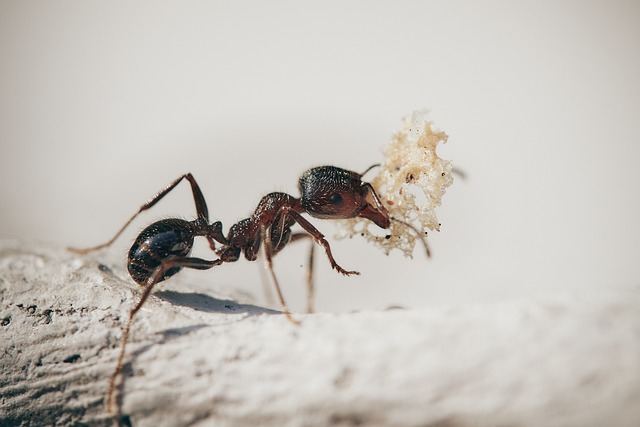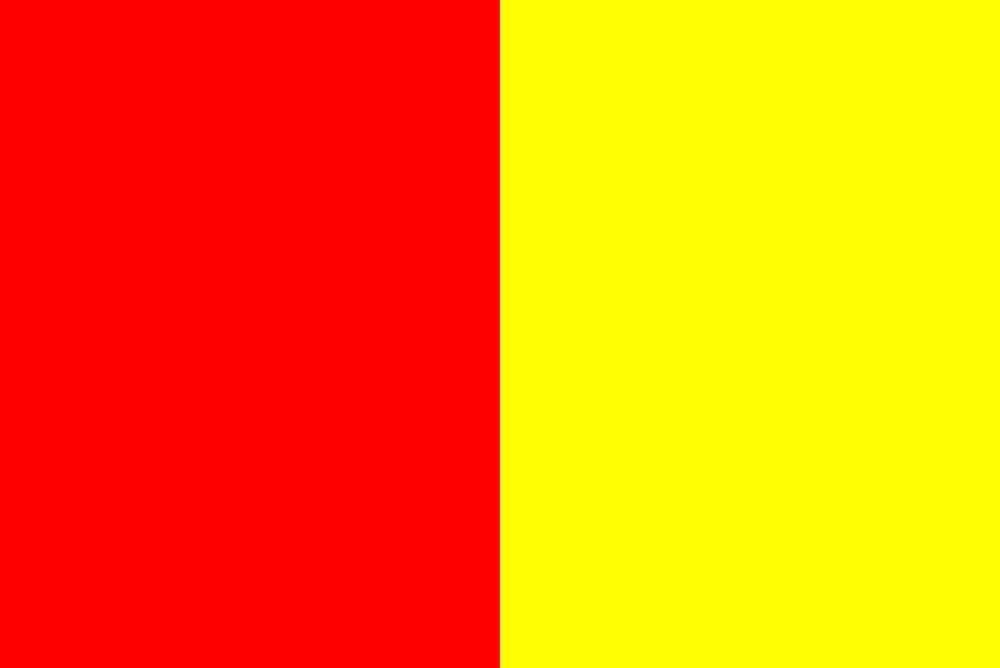You’ll do almost anything to get rid of an ant invasion. You can try hundreds of at-home solutions after conducting a quick internet search. And what about vinegar?
Does vinegar kill ants?
Yes, vinegar does kill ants. This is so that ants won’t die from being exposed to vinegar’s potent acids. The ants will perish if vinegar is sprayed directly on them. They will be killed more quickly if you use more vinegar.
Here’s the scoop.
Table of Contents
Does Vinegar Get Rid of Ants?
An ant infestation can be a serious issue. Ants are easily spread throughout the area with just a few crumbs. Ant infestations can be very painful, which is their worst quality. Ants can sting, and their stingers can make you itch, hurt, and occasionally even make you allergic. This is why having these pests around can be dangerous.
And to make matters worse, they are extremely challenging to get rid of. Even though they are so tiny, there are thousands of them. They can enter your home through even the tiniest cracks because they are so small. And there are enough of them to harm you and steal your food. That is why having ants around is so annoying.
When dealing with ants, you can always use pesticides and chemical killers. But as you may already be aware, these may have some undesirable side effects. You may also be in danger if you use these pesticides.
Finding a good home remedy is the best course of action because of this. Many of these exist, but vinegar stands out above the rest. In addition to being a very typical household item, it also works wonders at preventing ants.
Does Vinegar Kill Ants?
You may be curious as to whether vinegar can actually kill ants now that you know it will get rid of them. Perhaps you want the ants dead rather than just to have them stay away. Will vinegar do the trick?
Yes, vinegar can kill ants. This is so that ants won’t die from being exposed to vinegar’s potent acids. The ants will perish if vinegar is sprayed directly on them. They will be killed more quickly if you use more vinegar.
It’s important to note, though, that this method of ant control isn’t particularly effective. A colony of ants numbers millions. Even killing 1,000 ants at once won’t completely eradicate your ant problem. Seeing so many dead ants can be gratifying. They’ll keep returning, though, if you don’t block their entrance.
Because of this, using vinegar solutions to repel ants is much more effective than killing them.
Why Does Vinegar Fail To Kill Ants?
Because vinegar is such a weak acid, ants cannot be instantly killed by it. An ant won’t perish if you spray it with vinegar. Despite the fact that the ant dislikes having vinegar sprayed on it, you won’t harm it permanently. Instead, the ant will probably try to escape. The ant will return to its regular activities in a short while.
- Low levels of acetic acid in vinegar make it ineffective at poisoning and killing ants.
- An ant will survive if you spray it with pure white vinegar.
- A few minutes after being sprayed with vinegar, ants will flee and resume foraging.
Although spraying vinegar on some insects can kill them, ants are not among them. Their hard exoskeletons can withstand most compounds without being damaged. There isn’t nearly enough strong acid in pure vinegar to kill an ant because household vinegar typically only contains 4–7% acetic acid. More potent organic or inorganic substances that can get past an ant’s defenses will be required.
Can Vinegar Destroy Ant Mounds?
However, what if you visit the ant hill and pour vinegar there? What will happen? Will this solve your ant problem?
You will undoubtedly kill a lot of ants if you do this. But once more, it’s not the ideal approach to ant management. While many ants will undoubtedly perish in this attack, the issue won’t be resolved unless each and every ant is eliminated. The survivors, however, will disperse and create new mounds in different locations. Due to this, you might have to manage two mounds rather than just one.
However, there is a method for using vinegar to eradicate an ant colony. Although it’s not always effective, it’s still worth a shot. Vinegar can be sprayed on the exits rather than being poured over the ant mound. If you don’t get all the exits, this won’t work, so be sure to do that. Ants are unable to access food if there is no exit. Because of this, you can starve them to death in this manner. Again, not always. However, it’s worth a shot because this can completely wipe out an ant colony.
Is Vinegar Dangerous?
The fact that vinegar is completely risk-free is one of the many reasons why using it is so amazing. Yes, it might not be the best at getting rid of ants, but it works wonders at keeping them at bay. There are a lot of things that can go wrong if you use pesticides, so be aware of this before you do. You are in grave danger even from the fumes of these deadly chemicals.
Despite this, using vinegar still requires some caution. Recall that vinegar has an acidic pH. It might irritate your skin if it comes in contact with it. Possible burning sensation on the skin Even though you shouldn’t worry too much about this, it can be very painful.
Just occasionally, too. If vinegar gets on your skin, it usually has no effect. Therefore, using this solution won’t cause you any stress. Ants can be banished without any negative effects.
The smell is the only issue with vinegar use. Your nose won’t detect anything, though, if you mix it with water.
The best thing to use is vinegar if you don’t want to kill any animals. This is due to vinegar’s ability to repel ants rather than kill them. The ants won’t be harmed at all if vinegar isn’t sprayed directly on them.
Kill Ants With Vinegar
Although vinegar won’t actually kill the ants, it might stop them from looking for food. Ants leave behind tiny scent trails that let other colony members know there is food nearby. (They are therefore marching in a line across your kitchen floor.) They may get lost due to the vinegar’s smell.
Here’s how to do it:
- Mix one part vinegar and one part water in a spray bottle
- Spray where you see ants most often, including walls, floors, and countertops
- Spray the mixture on ants you see in a group and return in an hour to remove them if necessary.)
Unfortunately, it’s unlikely that vinegar will put an end to your ant problem permanently.

Effective Ant Killers Instead Of Vinegar
Instead of wasting time with ineffective ant repellents and useless “ant killers” like vinegar, it’s time to use solutions that work. The most dependable ant-killing products on the market are listed below, both chemical and natural.
Ant Spray
Use a spray made to kill pest insects in place of spraying vinegar on ants. An ant infestation can be eliminated in a matter of minutes by using a pesticide-based spray, which will kill ants instantly upon contact. Vinegar is significantly less effective than actual ant sprays because it doesn’t kill ants on contact.
- This ant-killing spray works by killing ants instantly.
- Vinegar rarely successfully kills ants, making it much less effective than other sprays.
- In your home, ammonia-based glass cleaners like Windex can be useful for killing ants.
Windex or another ammoniated glass cleaner will effectively kill ants, and you probably already have one of these products in your home. Glass cleaner works much better than apple cider vinegar or white vinegar for killing ants, even though it isn’t as effective as an ant spray.
Diatomaceous Earth
Use diatomaceous earth rather than vinegar to naturally get rid of ants. Diatomaceous earth doesn’t smell like vinegar, so you and your family won’t find it offensive. Diatomaceous earth is safe to use around food, kids, and pets because it is a natural, pesticide-free product made of the fossils of tiny organisms. In fact, there are several ways to use diatomaceous earth to kill ants.
- To naturally get rid of ants, use this diatomaceous earth made for food.
- Diatomaceous earth is a naturally occurring, chemical-free product that is created from the fossilized remains of single-celled organisms called diatoms.
- The ants’ exoskeletons are scratched by the minute fossils in diatomaceous earth, which causes the ants to lose water and die.
- Spread diatomaceous earth where ants walk to kill them in one to two days.
Diatomaceous earth powder intended for food is safe for both people and animals. But ants cannot survive it. An ant’s exoskeleton is cut by the sharp fossils in the powder, leading to dehydration and eventual death. In areas where ants leave trails, scatter diatomaceous earth. In 24 to 48 hours, walking through the powder will start to dehydrate and kill the ants.
Ant Baits
Natural ant control measures like cayenne pepper, coffee grounds, and vinegar are ineffective. However, with the help of expert ant baits, ants can be quickly eliminated. Place ant baits conveniently in areas of your home where ant activity has been observed. This may be found underneath your sink, in cabinets, or along baseboards. Just remember to keep the ant baits away from your countertop; if they get wet, some of the poison may leak out and contaminate your area used for preparing food.
- In areas of your home where you have seen ants, place these ant baits.
- Ant baits should not be placed on countertops or in areas where kids or pets might accidentally ingest them.
- Within days, powerful ant baits will start killing ants.
- Don’t bother with these DIY solutions because homemade ant baits containing boric acid take months to kill ants.
Although many online resources advise making homemade ant baits from boric acid powder, these homemade baits are frequently ineffective or very slow-acting. Homemade boric acid baits may not completely get rid of or control ants for several months. Commercial ant baits, on the other hand, can produce results in a matter of days.
Ant Gel
Using ant gel will enable you to quickly eliminate ants and keep them away from your home. Ants are drawn to the tasty-smelling scent of gel products, and they collect the gel to feed to their queen and fellow colony members. The gel’s poison will quickly kill the ants and the entire colony. Gel is therefore a much more effective technique than using vinegar.
- The queen and worker ants will both be poisoned by this potent ant gel.
- To areas of your home where ants are getting inside, apply a small amount of ant gel.
- Ant gel kills ants quickly, but you can reapply it once a month to prevent ants from coming back.
- With ant gel rather than vinegar, you can kill and deter ants more successfully.
In areas where you see ants entering your home, squeeze a small amount of the gel to quickly kill the ants there. It might be in cracks around baseboards, windows, doors, or other structures. Just be sure to apply the gel in an area where pets cannot access it. For ant control and exclusion, reapply the gel every month.
Granulated Ant Poison
By using granular ant poison outside, you can prevent ants from entering your home. Granular ant poison has a food-like scent to ants, similar to ant baits and gel. They will gather it, feed their colony with it, and the colony will then exterminate all the ants. For a few days, the smell of vinegar might keep ants away, but using ant poison will kill them before they get inside your house.
- These ant poison granules work well for eliminating ants in your yard or garden.
- Ant invasions into your home can be avoided by eliminating outdoor ant mounds.
- To kill ants, spread poison close to ant mounds or where they enter your house.
- The vinegar cannot kill an entire ant colony, but the poison granules can.
To deter ants, place granular poison close to ant entry points into your home, around ant mounds in your yard, or build a ring around your entire property. Make sure pets and children cannot access it, just like with other poisons. You can kill ants this way and protect your family at the same time.
White Vinegar Vs Apple Cider Vinegar
There are two common types of vinegar, white vinegar, and apple cider vinegar. What kind of vinegar should you use to get rid of ants? may be something you’re wondering.
These two varieties of vinegar differ in a few ways from one another.
- Its color is the most noticeable aspect. As you might expect, apple cider vinegar is brown and white vinegar is white.
- When it comes to cleaning, white vinegar is frequently used, while apple cider vinegar is frequently used in cooking.
However, there is little to no difference between the two when it comes to dealing with ants. To find out how powerful the acid is, you might want to check the content. But aside from that, it makes no difference what you use. Both of them will be very effective at keeping ants out of your home.
How Much Time Will White Vinegar Keep Ants Away?
Spraying a vinegar solution on ant trails may deter ants for 4–48 hours. It won’t, however, completely eliminate or deter ants. Ants leave scent trails between their nest and a food source that are destroyed by the acids in vinegar. However, ants are tenacious animals. They will make a new path to your food in a different area, even if they avoid an area that smells like vinegar.
- Ants are deterred by vinegar for 4 to 48 hours.
- Ants cannot be permanently repelled by vinegar spray.
- Around the vinegar, ants will lay down fresh trails.
- Ants will start moving through areas that have been sprayed with vinegar again after the vinegar smell has subsided in two to three days.
Spraying vinegar in a spray bottle on an ant trail will make it disappear if it is present along your baseboard or wall. The ants will make a new trail within a few days or hours. This one might run the length of your floor or the ceiling. The smell of vinegar also disappears quickly. In areas where you previously sprayed vinegar, ants will begin leaving trails after two to three days. See more about Does White Vinegar Kill Ants?
Get Rid Of Ants With Apple Vinegar
- Pour one part water and one part apple cider vinegar into a spray bottle. In areas where you frequently see ants marching in rows, spray along the ant trails. When you notice that many ants are entering your home, take this action. They travel in the direction of the ants who have gone before them. Ant trails typically lead to your ant infestation from a baseboard, window, or door. The spray aids in preventing ants from entering your home through the existing entryway.
- To prevent the ants that are still outside from detecting the scent trail, spray the vinegar solution along baseboards or other areas where you believe the ants are entering your home. Additionally, spray the counters, cabinets, and other places where ants congregate. Spray the solution evenly over the affected areas.
- To kill the ants, spray the solution on them directly and cover them with it. When killing many ants at once, this method works well. Return to clean up the dead ants in about an hour.
- In order to keep ants at bay, repeat two or three times per week. If necessary, increase the concentration of apple cider vinegar and apply it again to increase effectiveness.
Conclusion
These are a few techniques for eliminating ants using common household items. These usually suffice to take care of your ant problem. It is best to hire a professional if they don’t work or if your problem is too big for them.
Regarding your reading, I thank you.













